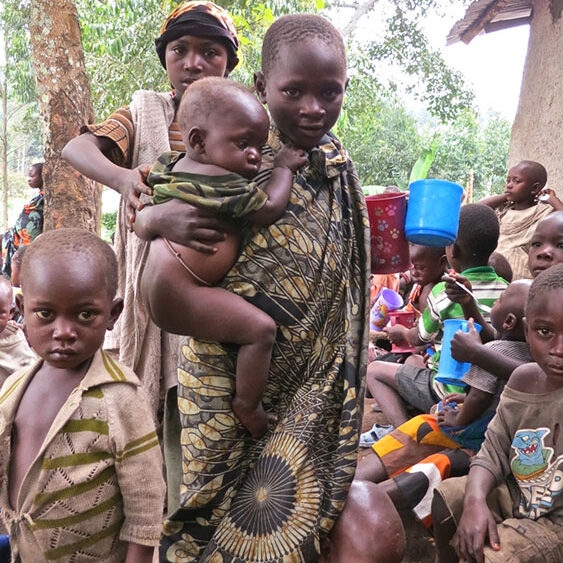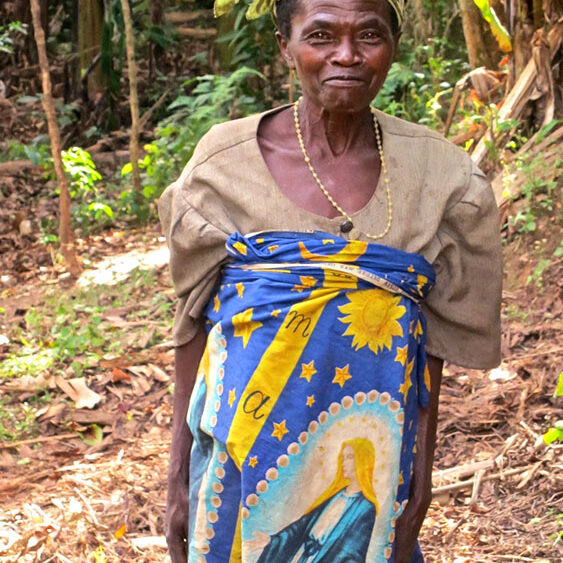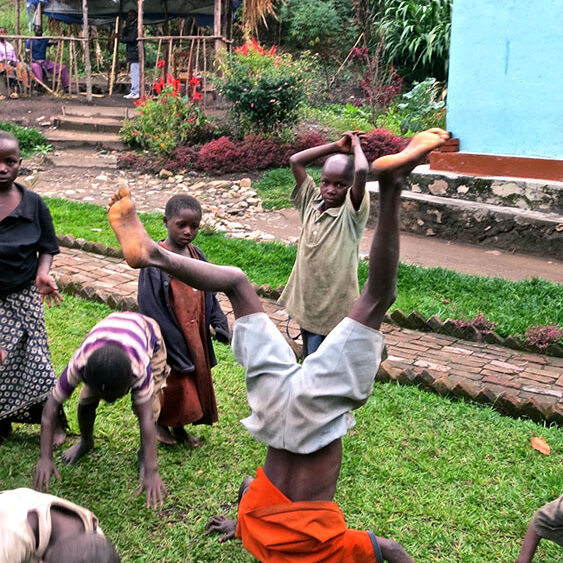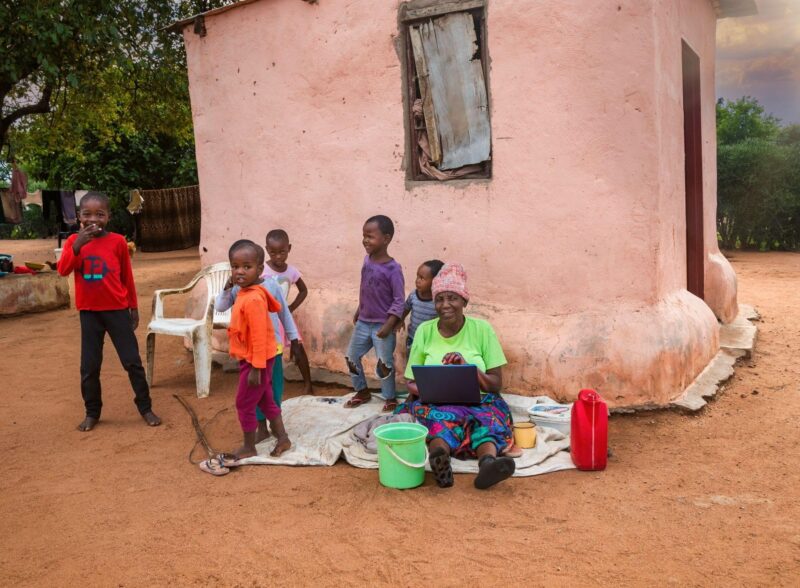Kuyiga /To Learn/
OUR WORK
Kuyiga /koo ee gah/ is a Kihavu word that means “to learn.” Kuyiga Computer-Based Learning (CBL) leverages technology to enhance education and practical skills in the Kivus. This initiative focuses on utilizing both online and offline computer-based learning tools, ensuring everyone has access to vital resources, irrespective of their internet connectivity.
Idjwi Island is a remote and underserved region with limited access to modern educational resources. The introduction of Kuyiga Computer-Based Learning (CBL) has the potential to significantly impact the island’s educational landscape, particularly for the indigenous people (PA) and other residents. However, the current lack of computers and infrastructure poses significant challenges.
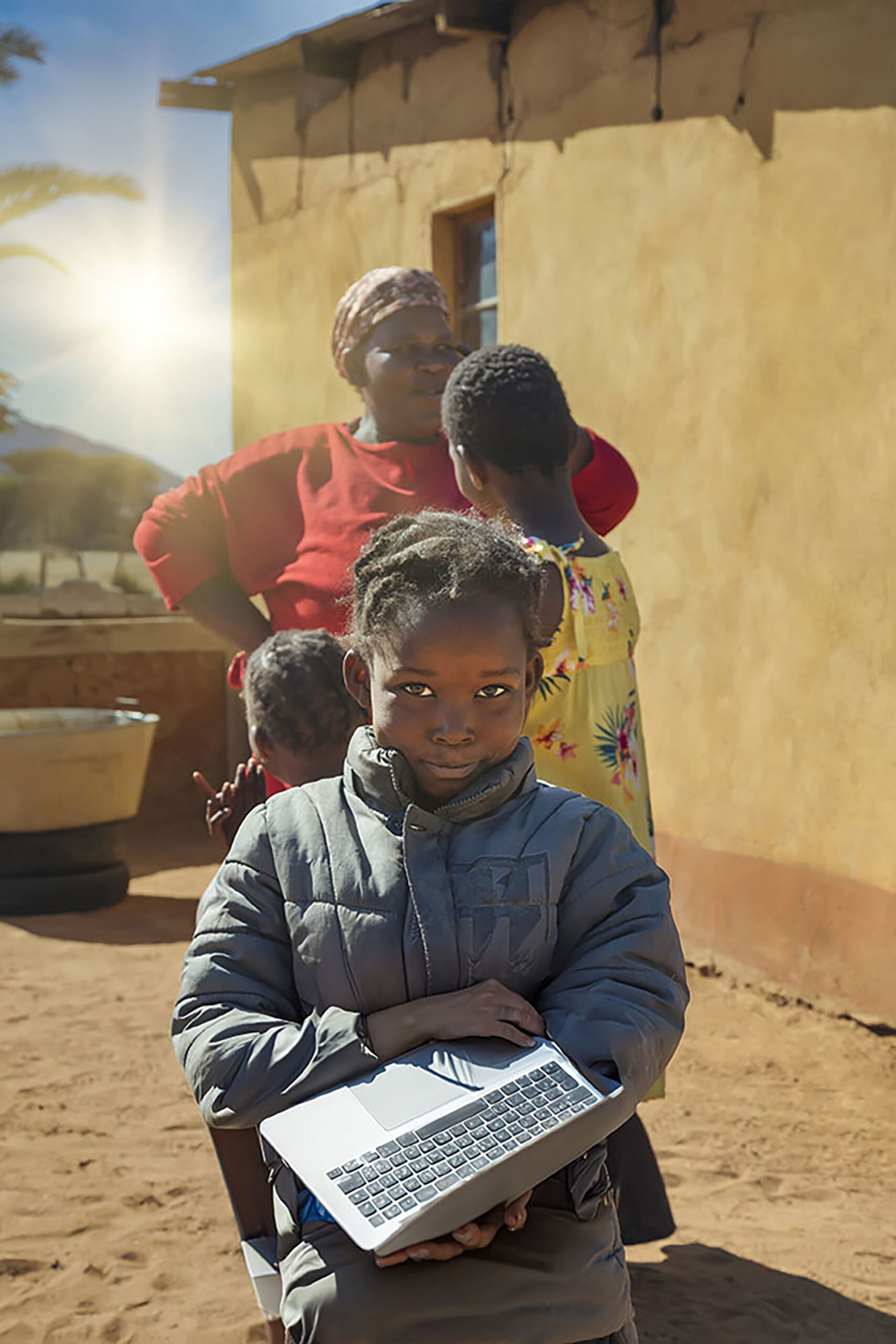
Currently, there is less than one computer per 100 households
Limited Infrastructure: Idjwi Island suffers from inadequate infrastructure, including electricity and internet connectivity, which are essential for computer-based learning.
Economic Constraints: The island’s residents, particularly the indigenous PA community, face economic hardships that make it difficult to afford computers and related technologies.
Educational Gaps: Schools on Idjwi often lack basic resources, and the introduction of computers could bridge significant educational gaps, providing students with access to a wealth of knowledge and skills.
Bridging the digital divide
Enhanced Learning Opportunities: Computers can provide access to a vast array of educational materials, including e-books, online courses, and interactive learning platforms, which can enhance the quality of education.
Skill Development: Computer literacy is a crucial skill in the modern world. By learning to use computers, individuals of all ages can develop skills that are essential for employment and entrepreneurship.
One computer per household: Introducing computers can help bridge the digital divide between Idjwi and more developed regions, ensuring that residents are not left behind in the global digital economy.

Currently, there is less than one computer per 100 households
Limited Infrastructure: Idjwi Island suffers from inadequate infrastructure, including electricity and internet connectivity, which are essential for computer-based learning.
Economic Constraints: The island’s residents, particularly the indigenous PA community, face economic hardships that make it difficult to afford computers and related technologies.
Educational Gaps: Schools on Idjwi often lack basic resources, and the introduction of computers could bridge significant educational gaps, providing students with access to a wealth of knowledge and skills.
Bridging the digital divide
Enhanced Learning Opportunities: Computers can provide access to a vast array of educational materials, including e-books, online courses, and interactive learning platforms, which can enhance the quality of education.
Skill Development: Computer literacy is a crucial skill in the modern world. By learning to use computers, individuals of all ages can develop skills that are essential for employment and entrepreneurship.
One computer per household: Introducing computers can help bridge the digital divide between Idjwi and more developed regions, ensuring that residents are not left behind in the global digital economy.

Currently, there is less than one computer per 100 households
Limited Infrastructure: Idjwi Island suffers from inadequate infrastructure, including electricity and internet connectivity, which are essential for computer-based learning.
Economic Constraints: The island’s residents, particularly the indigenous PA community, face economic hardships that make it difficult to afford computers and related technologies.
Educational Gaps: Schools on Idjwi often lack basic resources, and the introduction of computers could bridge significant educational gaps, providing students with access to a wealth of knowledge and skills.
Bridging the digital divide
Enhanced Learning Opportunities: Computers can provide access to a vast array of educational materials, including e-books, online courses, and interactive learning platforms, which can enhance the quality of education.
Skill Development: Computer literacy is a crucial skill in the modern world. By learning to use computers, individuals of all ages can develop skills that are essential for employment and entrepreneurship.
One computer per household: Introducing computers can help bridge the digital divide between Idjwi and more developed regions, ensuring that residents are not left behind in the global digital economy.
How Computer-Based Learning is transforming remote regions around the globe

The introduction of Kuyiga Computer-Based Learning on Idjwi Island holds immense potential to transform the educational and socio-economic landscape, particularly for the indigenous PA population. However, addressing the current lack of computers and infrastructure is crucial for realizing this potential. By learning from successful examples in other remote regions, Idjwi can harness the power of technology to improve the skills and knowledge of its residents, fostering a brighter future for all.
Online Learning Platforms
Kuyiga Online provides courses and resources that cater to different learning levels, enabling individuals to gain practical knowledge and skills relevant to their aspirations. Online access aims to improve literacy rates and educational achievement, ultimately breaking the cycle of poverty within rural communities.
Offline Learning Solutions
For areas with limited internet access, Kuyiga Offline learning kits include preloaded educational software, interactive modules, and digital libraries. These tools provide essential learning opportunities, empowering individuals to pursue their interests and career goals without the barrier of unreliable connectivity.
Skills Development Workshops
By incorporating practical skills training into our programs, we enhance the employability of community members. Our workshops, supported by computer-based tools, focus on essential competencies that address the local job market’s
needs.
Continuous Learning Opportunities
We believe education is a lifelong journey. The Kuyiga Initiative encourages individuals of all ages to deepen their knowledge, explore new fields, and remain curious.
With one device at a time, we can help widen access to computer-based learning tools that encourage people to think differently and support communities to work together to create a sustainable future.
How Computer-Based Learning is transforming remote regions around the globe
One Laptop per Child (OLPC) Initiative: In remote areas of Rwanda and Peru, the OLPC initiative has provided children with laptops, significantly improving their literacy and numeracy skills. The program has also fostered a sense of curiosity and self-directed learning among students.
Digital Literacy in Rural India: In rural India, the introduction of computer-based learning centers has empowered women and marginalized communities by providing them with digital literacy skills, leading to improved employment opportunities and economic independence.
E-Learning in Amazon Rainforest: Indigenous communities in the Amazon have benefited from e-learning platforms that offer courses in their native languages, preserving cultural heritage while providing modern education.
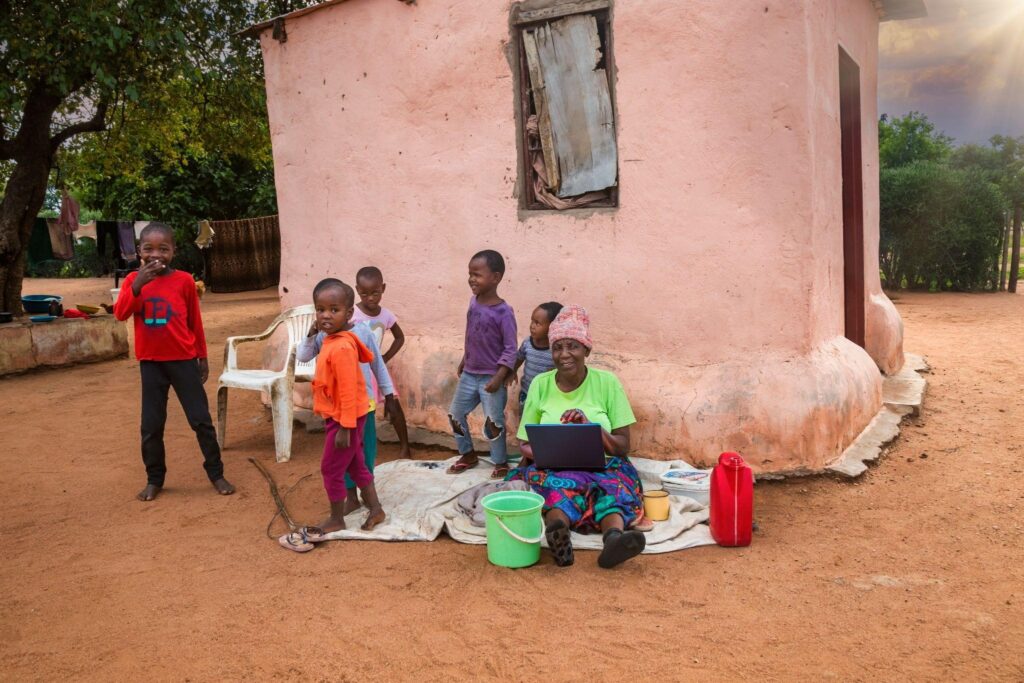
The introduction of Kuyiga Computer-Based Learning on Idjwi Island holds immense potential to transform the educational and socio-economic landscape, particularly for the indigenous PA population. However, addressing the current lack of computers and infrastructure is crucial for realizing this potential. By learning from successful examples in other remote regions, Idjwi can harness the power of technology to improve the skills and knowledge of its residents, fostering a brighter future for all.
Online Learning Platforms
Kuyiga Online provides courses and resources that cater to different learning levels, enabling individuals to gain practical knowledge and skills relevant to their aspirations. Online access aims to improve literacy rates and educational achievement, ultimately breaking the cycle of poverty within rural communities.
Offline Learning Solutions
For areas with limited internet access, Kuyiga Offline learning kits include preloaded educational software, interactive modules, and digital libraries. These tools provide essential learning opportunities, empowering individuals to pursue their interests and career goals without the barrier of unreliable connectivity.
Skills Development Workshops
By incorporating practical skills training into our programs, we enhance the employability of community members. Our workshops, supported by computer-based tools, focus on essential competencies that address the local job market’s
needs.
Continuous Learning Opportunities
We believe education is a lifelong journey. The Kuyiga Initiative encourages individuals of all ages to deepen their knowledge, explore new fields, and remain curious.
With one device at a time, we can help widen access to computer-based learning tools that encourage people to think differently and support communities to work together to create a sustainable future.



